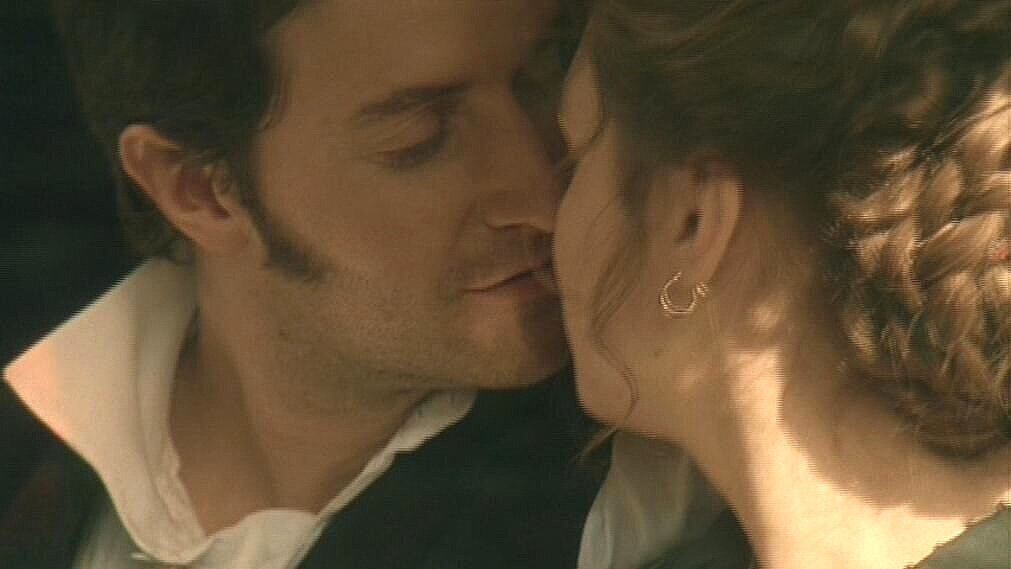Fanny hovers over the offered sweets. Were these bought from the bakery?
With so many people spending more time creating in their kitchens this stay-home year, could there be a more timely topic to round out the year?
There’s no indication that Margaret spent time in her kitchen either in Helstone or in Milton. According to Gaskell’s North and South, the Hales kept a cook in Helstone, besides having a house-maid and Dixon, a ladies maid. In Milton it was difficult to find help and Dixon had to take up regular household duties that had once previous been beneath her.
When Mr. Hale announces that Mr. Thornton is coming to tea, Margaret offers to help with some of the day’s work, but it’s not to do any of the baking:
“…we will give [Mr. Thornton] a welcome, and some cocoa-nut cakes. Dixon will be flattered if we ask her to make some; and I will undertake to iron your caps, mamma.”
Mrs. Hale is distressed at the thought of her daughter helping out with the laundry down in the kitchen. Evidently, a gentleman’s daughter was not expected to have to do daily drudgery. It appears likely that Margaret may never have learned to cook or bake.
Certainly, Margaret would never have set foot in the kitchen at Aunt Shaw’s unless it was to relay orders. Learning to cook and bake would not have been on the list of things for Edith to learn. She would never have been expected to do the cooking. Both girls would have been taught, however, how to serve tea.
Alas, does this mean that Margaret would never bake a special batch of treats for her husband once married? Who knows! Both Margaret and John both pushed against being constrained by tradition or class rules. If she had the impulse to bake something herself, I’m sure she would do so. But Margaret Thornton wouldn’t need to do housework or kitchen work.
Apple pie
I, on the other hand, have been enjoying playing in the kitchen. I’ve been spending more time than ever baking and am grateful for a productive hobby to keep me busy while staying home with the family for months on end.
I also love watching and re-watching The British Baking Show. I sometimes put it on for background noise while I’m in the kitchen.
Although I would LOVE to have food made for me, I think I would miss baking. It’s a creative outlet that satisfies — in more ways than one!
My mother was always baking pie, brownies, cookies or cakes. Dessert means “I love you” in my family’s parlance.
Baking is making a tremendous resurgence right now. Are you spending more time baking? What have you made?
The traditional Christmas cookies for the kids to decorate.




















